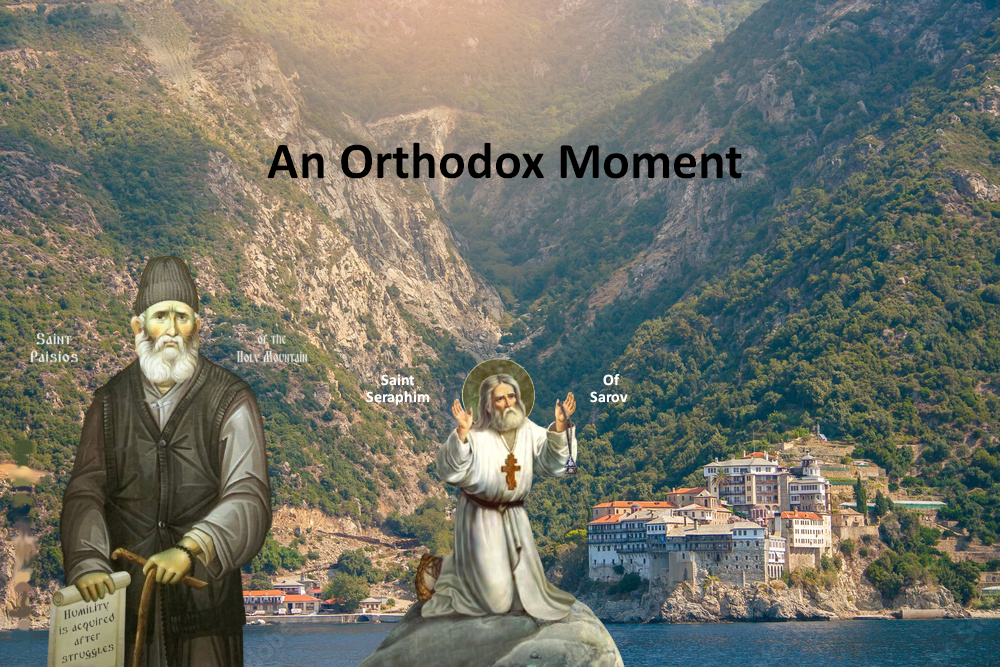Reading the *Song of Songs* in the light of Church tradition and drawing on the experience of the Holy Fathers, we can say to ourselves: it is absolutely clear that our Lord Jesus Christ loves us as members of His Body, as members of His Holy Family, and each of us is called to respond with a unique, mutual love.
Orthodox spouses, who have sealed their love with the mark of Christ, can discover and experience this resemblance to Christ through the mystery of marital love: “Husbands, love your wives as yourselves, just as Christ loved the Church… this is a great mystery” (Eph. 5:25, 32). This apostolic statement reveals to us the greatness of Christian marriage and how closely it is aligned with the monastic ideal—more so than any purely human view of the marital union.
As Elder Paisios of Mount Athos said, “A monk is one who has chosen spiritual joys over all in the world,” one who understands that Christ’s love will completely fill his heart.
If we barely feel how Christ loves us and how He awaits our reciprocal love, even then His love can fill our lives. He needs nothing from us except complete, wholehearted dedication, to the point of giving our very lives. This is what is expressed at the end of the *Song of Songs*, when the unguarded longing comes into conflict with the idyllic transparency of the earlier dialogues—not for any other reason but to reveal the strong flame that mysteriously inspires them: “Love is as strong as death; jealousy is as cruel as the grave” (Song 8:6).
Just as Christ's love found its highest expression in His death on the Cross, so too our love for Him finds its highest expression in martyrdom or, at the very least, in the full acceptance of pain and death—whenever and however God wills.
Therefore, the Holy Fathers teach us that “those who love God participate in all of Christ's works, enduring a little martyrdom in everything they do” (Sayings of the Desert Fathers). In this sense, it is not about suffering, but rather it is easier to serve God only through pain (St. Gregory the Theologian). Accepting pain, our consent to it, becomes our expression of complete internal exposure, like the sacrament of giving ourselves fully to love. As one of the Fathers said: “If sickness is borne with patience and gratitude, it brings the same crown as martyrdom.”
The joyful zeal of the martyrs, their desire to shed blood for Christ, is a testament to love.
In the world to come, when death is conquered once and for all, this complete dedication to love will be revealed through the transformation of our whole being—body and soul—into divine glory, into a state without pain or death. Here, Christ Himself, in the glory of His Resurrection and in His eternal presence, will be as He was when He ascended the Cross. But in our present time, in this “world,” Christ's victory over death and pain (which are the consequences of sin and our conscious separation from God) is established not by their abolition but by their transformation, as a confirmation of perfect love, by the power of the Holy Spirit, as a realization of our freedom. The joyful zeal of the martyrs, their eagerness to shed blood for Christ, is a clear testimony to this love.
The *Song of Songs* is a poem inspired by the Holy Spirit, a cup that can be tasted only by those who partake in Christ's love: “Eat, O friends! Drink, yes, drink deeply, O beloved ones!” (Song 5:1). Holy things are for the holy! We must respect its secrets and not try to understand and explain everything. Any overly detailed commentary risks stripping it of the God-given power and reducing it to a simple allegory. May the Holy Spirit grant us to experience what a certain monk from Mount Athos said: “When I read the *Song of Songs*, my mind does not always understand the meaning of each phrase, but my heart burns, like that of Luke and Cleopas when the Lord explained the Scriptures to them on the road to Emmaus.”
